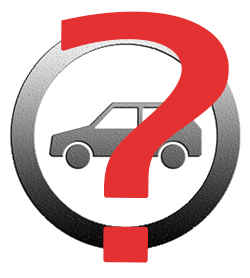Why is my car beeping?
Have you ever been puzzled by the persistent beeping of your car? Understanding the reasons behind these beeps can help you address issues promptly and ensure your safety on the road.

Here are some common causes of car beeping and what you can do about them:
Seatbelt Reminder
Your safety comes first. If you or your passengers haven’t fastened your seatbelts, many cars emit a distinct beeping sound to remind everyone to buckle up. Ensuring that all occupants are securely belted can silence this reminder and keep everyone safe in case of an accident.
Door Ajar Warning
Ever heard your car beep incessantly while driving, only to realize later that a door wasn’t properly closed? This beeping serves as a warning that one of the doors is not fully closed or latched. Ensuring that all doors are properly shut before hitting the road prevents any unexpected openings, especially during turns or at high speeds.
Low Fuel Warning
Running out of gas on the road can be a hassle. To prevent this, some vehicles sound a beeping alarm when the fuel level drops to a certain point, reminding you to refuel soon. Ignoring this warning could leave you stranded, so it’s wise to heed it and fill up your tank promptly.
Engine Overheating
Your car’s engine operates within a specific temperature range, and if it starts to overheat, it can lead to severe damage. A beeping sound may indicate that the engine temperature has risen abnormally high, requiring immediate attention. Pull over safely, turn off the engine, and allow it to cool down. Check coolant levels and inspect for leaks before resuming your journey.
Low Oil Pressure
Oil is the lifeblood of your engine, and low oil pressure can spell trouble. If your car beeps to signal low oil pressure, it’s crucial to stop the vehicle immediately and check the oil levels. Adding oil if necessary or seeking professional assistance can prevent potential engine damage.
Battery Voltage Issue
A significant drop in battery voltage can trigger a warning beep, signaling a potential problem with the battery or charging system. Check battery terminals for corrosion and ensure they are securely connected. Consider having the battery and charging system inspected by a mechanic for peace of mind.
Parking Sensors
Many modern cars come equipped with parking sensors to assist drivers in maneuvering in tight spaces. If your car beeps while parking or maneuvering, it may indicate proximity to an object. Paying attention to these alerts can help you avoid collisions and park safely.
Engine Malfunction
Some cars feature a diagnostic system that alerts the driver to engine malfunctions through a series of beeps. If you hear such beeps, it’s essential to schedule a diagnostic check at a certified mechanic or dealership to identify and address any underlying issues.
What to Do?

In response to these warnings, take appropriate action:
- Fasten seatbelts for all occupants.
- Ensure all doors are properly closed and latched.
- Refuel the vehicle to avoid running out of gas.
- Safely address engine overheating or low oil pressure.
- Check battery connections and seek professional inspection if needed.
- Be mindful of parking sensor alerts and adjust vehicle positioning.
- Schedule a diagnostic check for engine malfunctions.
Additional Tips

- Stay on top of regular maintenance tasks, including oil changes and fluid checks, to prevent potential issues.
- Familiarize yourself with dashboard symbols and warning lights to promptly address any alerts.
- Stay alert and attentive while driving to notice any unusual sounds or warning signals from the vehicle.
- Keep an emergency kit in your car with essentials like water, flashlight, jumper cables, and basic tools for unexpected situations on the road.
By understanding the reasons behind your car’s beeping, you can respond effectively and ensure a safer and smoother driving experience.
Stay informed, stay safe, and happy driving!












